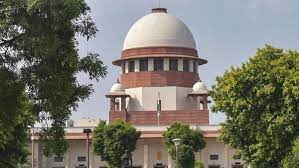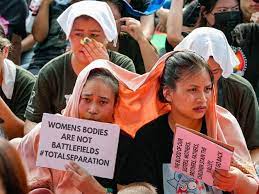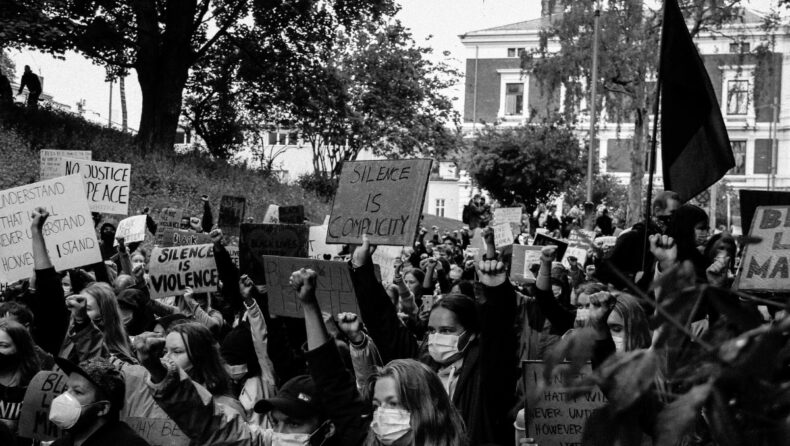“The victims have already been through a lot,” the court said. “We cannot put them through any more trauma.”
Table of Contents
In a landmark decision aimed at upholding the rights and dignity of women victims in Manipur, the Supreme Court on Tuesday ordered the Central Bureau of Investigation (CBI) not to proceed with the recording of the statements of the two women victims of the Thoubal sexual violence incident in Manipur.
The video, which went viral in July, showed two women being paraded naked in Manipur’s Thoubal district. The women were reportedly accused of being involved in a relationship with a married man.

Incident Sparks Outrage Across the Country
This is not the first time that the Supreme Court has intervened in the case. In July, the court ordered the CBI to take over the investigation from the Manipur police. The court said that the police had failed to conduct a proper investigation.
The CBI has registered a case against the men involved in the incident. The case is being investigated by a team of special prosecutors.
The CBI took over the investigation into the case on July 22. On Tuesday, the agency asked the women to come and depose before it. However, the women’s lawyers filed a petition in the Supreme Court seeking an order to restrain the CBI from recording their statements.
- The incident in Manipur took place on May 26, 2024.
- The two women victims were paraded naked in public by a mob of men.
- The video of the incident went viral, sparking outrage across India.
- The CBI has registered a case against the men involved in the incident.
- The case is being investigated by a team of special prosecutors.
- The Supreme Court’s order was issued on August 1, 2024.
Victims’ Lawyers Say They Are Not in a State to Give Statements
The victims’ lawyer, Nizam Pasha, had told the court that they were not mentally prepared to give statements to the CBI. He said that they had been traumatized by the incident and were still recovering. The lawyers argued that the women were in a traumatized state and that recording their statements would further aggravate their mental health. They also said that the women had already given their statements to the police.
The Supreme Court orders the CBI to Wait for the outcome of the hearing.
The CBI had argued that it needed to record the victims’ statements as soon as possible in order to investigate the case. However, the court said that it was more important to protect the victims’ rights.
“The victims have already been through a lot,” the court said. “We cannot put them through any more trauma.”

Call to Action
The CBI has said that it will abide by the court’s order. The Supreme Court agreed with the lawyers’ arguments and ordered the CBI not to proceed with the recording of statements. The court said that it would hear the matter at 2 p.m. and decide on the future course of action.
The survivors of the attack have been seeking justice for the “horrendous” incident. They have demanded that the perpetrators be brought to justice and that the government take steps to prevent such incidents from happening in the future.
- According to the National Crime Records Bureau, 33,707 cases of crime against women were reported in India in 2021.
- Of these, 28,329 cases involved violence against women.
- The most common form of violence against women is sexual violence, followed by domestic violence.
- The majority of victims of violence against women are women between the ages of 18 and 30.
Violence Against Women: A Serious Problem in India
The Supreme Court’s order to suspend the recording of statements from women victims in Manipur marks a significant step towards ensuring justice and dignity for survivors of heinous crimes in conflict-affected regions. By recognizing the challenges faced by women during the investigative process and calling for necessary safeguards, the court aims to create a more empathetic and sensitive system that encourages survivors to come forward without fear. This landmark ruling will not only empower women to seek justice but also build trust in the justice system, fostering a more inclusive and equitable society for all.













